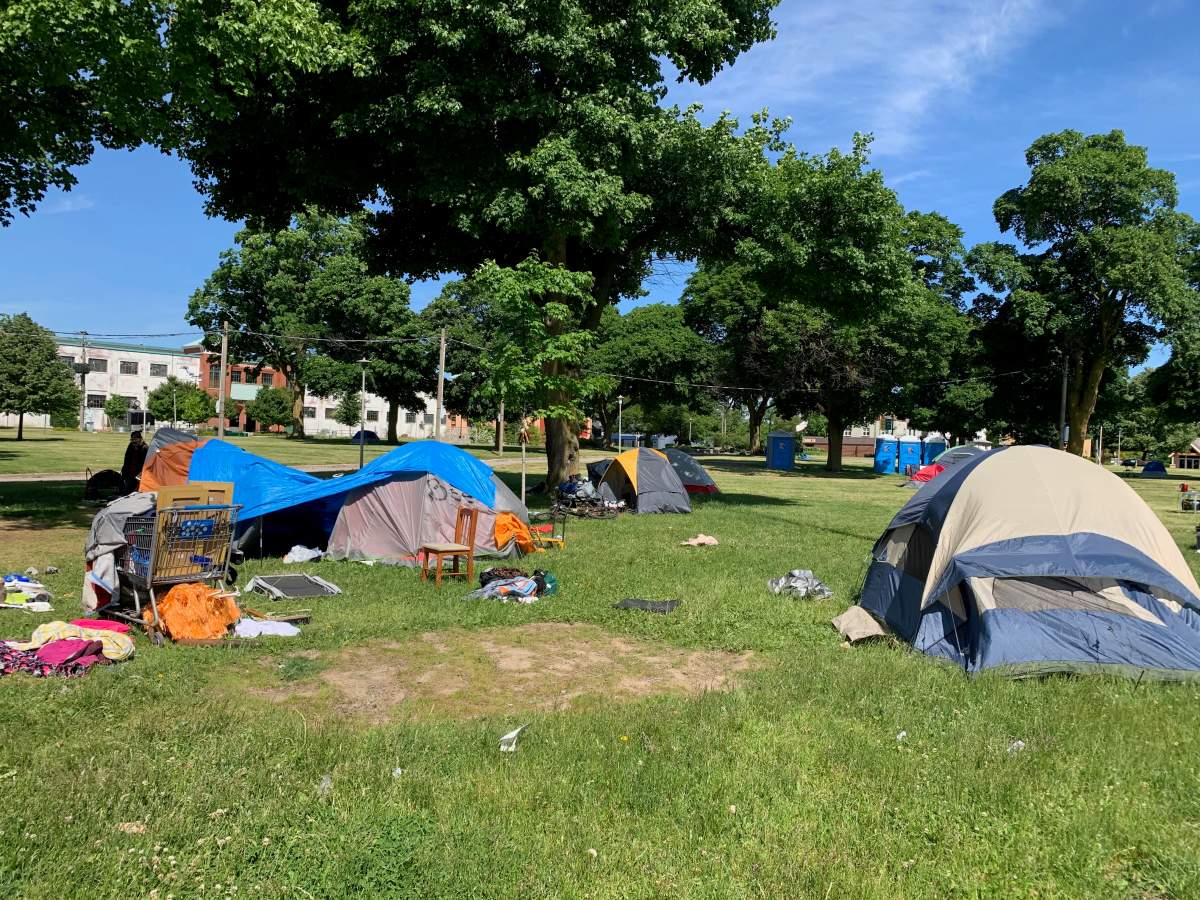A community of tents can be spotted across a park near downtown London, Ont., and the city says they’re letting them stay — for now.

Since the coronavirus pandemic made its impact in mid-March, the City of London paused its ban to allow homeless encampments.
“We’ve always had an unsheltered population here in the city,” said Craig Cooper, the homeless prevention manager with the city.
“The numbers compared to last year from this year are fairly similar. We’ve seen a very slight uptick with the COVID-19 (pandemic).”
Cooper said Friday the encampments are similar to what they’ve seen in previous years — “it’s just they’re more congregated together now.”
One of the larger encampments is at Queens Park, located near Dundas Street and Quebec Street.
A man, who requested only to be identified as Joe, said he felt “safe” living at the encampment in the park.
“You got washrooms, people coming by to check up on you… it’s better than some of the options out there.”

Cooper says the city made the decision to allow temporary encampments when the COVID-19 pandemic first hit London.

Get breaking National news
“When we saw all the (support) agencies close, (along with) meal programs, libraries, day-programs… we realized people had nowhere else to go.”
“The city had allowed some of the encampments to remain on city property where they (must) manage physical distancing.”
The “rules” of setting up a camp at Queens Park or another encampment space in the city include keeping tents at least 12 feet apart, not interacting within six feet of others, and “they (must) keep the spaces maintained.”
“There (cannot be) needles being left all over the place, and there’s no challenges for the health and safety for the community,” said Cooper, who adds these encampments are not permanent.
“It won’t continue on for the duration of the pandemic… we don’t think this is a permanent housing solution; (the) goal is to get people housed.”
Joe, who has spent one week at the encampment, expressed his frustrations with the lack of affordable housing in the city, as well the complications that come with renting a living space.
“It’s hard to just even get a call back… they ask you to fill out a form, and they want credit checks, you got to have a full-time job, good credit, (and) depending on your situation, it’s pretty hard to have all that.”
“It quite defeating when you’re stuck in this spot… it’s hard to dig yourself out and move forward.”

“I’ve got friends who’s been stuck in motels for a year, and they’ve been trying to find places and they just can’t do it,” said Joe.
“If you don’t have a good job, good credit and references, you’re stuck, (and) trying to find even a minimum wage job (can) be hard too.”
In April, the City of London had rented 100 motel rooms to help house the municipality’s vulnerable population during the COVID-19 pandemic.
The rooms were to house people who were considered the most at risk, including the elderly and people with pre-existing health conditions.













Comments
Want to discuss? Please read our Commenting Policy first.